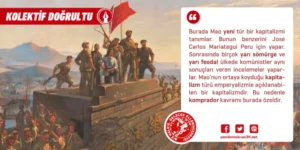
Finland: Notes on the occasion of the first round of the presidential elections
Featured image: picture from Yleisradio
We publish this unofficial translation of an article of Punalippu.
The most important result of the first round of the presidential elections carried out on Sunday 28th of January was not that Alexander Stubb (National Coalition) and Pekka Haavisto (the Greens) were elected for the second round but the success of Jussi Halla-aho (the Finns).
Halla-aho received a support of 19,0 per cent in the election, which corresponds to the support of the Finns Party. Halla-aho also kept to the line and message of this Party instead of trying to fish for votes by breaking away from his Party, unlike Stubb, Haavisto and Olli Rehn (Center Party). This shows that the line of foreign politics of the Finns gathered a significant support. It is not only about a specific policy on immigration, which for the most part is not even part of foreign politics, but the whole line of foreign politics.
In the earlier presidential elections the Finns have not come even close to this. In 2012 Timo Soini got 9,4% of the votes and in 2018 Laura Huhtasaari got 6,9%, in addition to which we need to take into account Paavo Väyrynen (at that time as a candidate of an electoral association) who was partly fishing for the same votes, who received 6,2% of the votes. Thus only in this election the line of the Finns became a noteworthy line in foreign politics.
Behind this change there is especially three factors: 1. the war of Ukraine, 2. the program work of the Finns, 3. the Finns having become established in the political field. The war of Ukraine has been used to inflame patriotic, anti-Russian moods in Finland, and Halla-aho embodies these moods more clearly than any other candidate, apart from maybe the researcher Mika Aaltola. The program work done during Riikka Purra’s term in the Finns has helped the party to rise from a protest movement of a single issue to an established Party, which has a relatively stable support.
This expresses the change in the position of Finland in foreign politics. The predecessor of the Finns, the Finnish Rural Party, was completely out of the game of foreign politics because of being ”anti-Soviet”, and neither the Finns could for a long time be nothing else than an Euro-sceptic counter-movement rather than an alternative. The war of Ukraine, cutting ties with Russia and the NATO-membership have changed the situation.
The winner of the first round, Stubb, who is trying to woo the supporters of Halla-aho in the next round, has come to the same conclusion: ”People must understand that the Finns and the Finns-ism have come to Finland as a permanent political force and in my opinion a constructive political force…”
The Finns has earlier especially in the parliamentary elections succeeded in increasing the general participation in the elections. This time this phenomenon is seen in also in the presidential elections, where in the first round 74,9% voted. It is likely that the percentage of voters decreases on the second round especially as the Finns do not participate. The same estimation has been made by among others the researcher Markku Jokisipilä.
The candidates of the second round
It has to be repeated and highlighted again that neither of these candidates is in any way progressive or even ”the lesser evil”.
Stubb has highlighted the corporativist character of the presidential institution: ”My fundamental message is that the President of the Republic cannot be a person who is onesidedly of one opinion, but he has to listen, understand, care and discuss. Once again I say that these are not elections of Party politics. These are elections of a person.” He also highlighted on the election night that he detests inflaming polarization and stresses, repeating his main campaign slogan, that the ”President of the Republic must be the one who brings us together”.
On the same occasion Haavisto reaffirms his most important reactionary positions, which are common with Stubb, and at the same time stresses unity as the fundamental element of corporativism: ”We agree in the big questions of security policy: NATO-membership, Finland’s Defense Cooperation Agreement with the USA, in that we are strict, hard in regard to the eastern border, and it is not a bad thing that there is such a great unity in central questions of foreign politics in Finland. It is what makes the Finnish people strong.” In addition to this, Haavisto has expressed his support among others to the freezing of funding to the UNRWA. Taking this to account there is no reason to think that Stubb would be a worse gofer of the USA – in this aspect, Stubb and Haavisto are both as bad.
Both also reaffirm the role of the president in the internal politics. Haavisto says in the same interview: ”What has come up in the recent discussions in addition to foreign- and security politics is the poverty of the Finnish people, inequality, the development of different regions, the situation of Eastern Finland. This type of worries people have and they want a president, who understands the worries of a completely ordinary Finn. Even though the president does not decide on these things, he has to know Finland.”
Stubb seconds Haavisto in the same interview. To Iltalehti he explains his positions in internal and economy policies, to woo the supporters of one certain Party as his obvious goal: ”When I tell about the Finnish society to the world, one of the parts of it is the traditional social democracy. We talk about welfare services, education or support networks and social politics.”
Generally it is expected that Stubb will be elected president. Taking into account the corporativist role of the president, here it needs to be remembered that in other than foreign and security politics Stubb is a total amateur, who received a lot of criticism, also from his own, as prime minister, as financial minister and as the head of National Coalition. This predicts that the instability of the political system of Finnish imperialism will increase.

